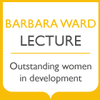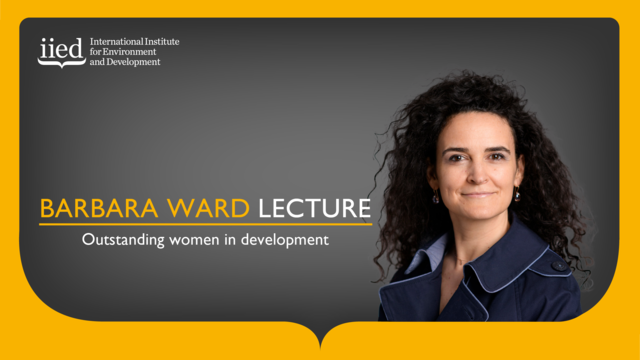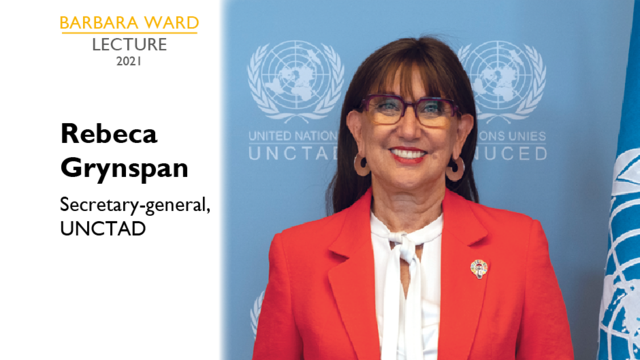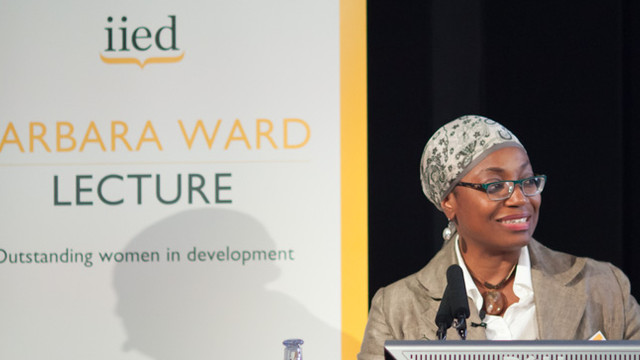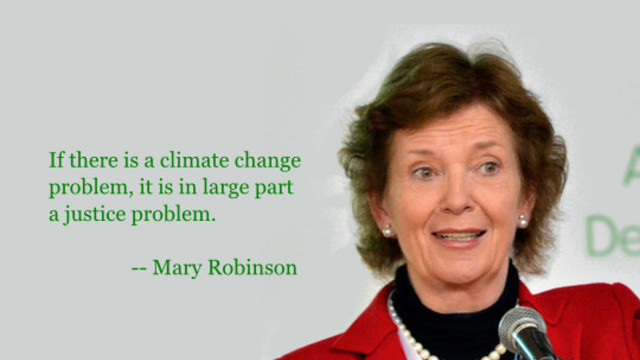2008 Barbara Ward Lecture: Lindiwe Sisulu on managing relationships between the state and the urban poor
Lindiwe Sisulu looked at the often troubled relationship between the state and the urban poor when she delivered the 2008 Barbara Ward Lecture in London. Her aim was to analyse why the state and the urban poor often find it difficult to work together, and to reflect on the key elements for successful cooperation.

Sisulu said the increasing number of people living in urban poverty was one of the biggest threats facing the developing world. The challenge was assuming enormous dimensions, and governments in the developing world ignored populations living in urban slums at their own risk.
She said the UN estimated that 1.4 billion people would be living in urban slums by 2020. Recent violence in Kenya and South Africa had shown that slums would be a "site of struggle" unless problems were resolved as a matter of urgency.
Sisulu said many governments were trying to improve things, but they often found the experience of working with the urban poor a "chastising and stormy" one.
She told the audience at the lecture organised by IIED that it was important to reflect critically on the difficulties experienced by both sides.
She said she had been amazed at the way in which the urban poor were sometimes able to mobilise themselves to address their housing needs. On the other hand, the way in which the urban poor sometimes were unable to shake off their inherent mistrust of government, had been a great source of frustration.
Sisulu said the relationship between homeless people and the state was marked by a range of awkward issues:
- Government officials were often very bureaucratic in their dealings with homeless people
- Poor people's movements were not particularly good at following procedural requirements
- Governments were tied to budget cycles but people's movements seldom matched budget calendars
- When people's movements got subsidies, they were very slow at delivering finished housing, and
- People's movements were poor at dealing with discord or disruptive elements within their own ranks.
She said slum dwellers needed to organise, and systematically learn how to engage with government. She said one example of effective mobilisation and engagement was Shack/Slum Dwellers International (SDI). SDI is a network of community-based organisations in 34 countries across Africa, Asia and Latin America. It works to improve conditions in slums.
For governments, a key learning point was that public interventions that acknowledged and understood existing informal arrangements and protocols tended to succeed. Those that didn't tended to fail.
Sisulu said there was extensive literature on how to reconcile private and public interests, but the issues of slum dwellers were more extreme. She said: "What is different in informal settlements is the intensity of the tensions, the fluidity of the players involved and the stakes involved in not winning."
Read the full text of Lidiwe Sisulu's speech.
About Lindiwe Sisulu

Lindiwe Sisulu has been a member of parliament in South Africa since 1994 and is a member of the National Executive Committee of the African National Congress (ANC).
Sisulu was born to ANC leaders Walter and Albertina Sisulu. In 1976, she was detained for her involvement in anti-apartheid activities. She spent 11 months in detention. After her release she went into exile and joined the military wing of the ANC, Umkhonto we Sizwe. Two years later she returned to South Africa and became a teacher and lecturer.
In 1990, after the lifting of the ban the ANC, Lindiwe resumed her work as personal assistant to Dr. Jacob Zuma and later in the ANC's Department of Intelligence and Security. She was appointed deputy minister of home affairs in 1996. She has since held a variety of ministerial posts. She is currently serving as minister of human settlements.
She has published extensively on the subjects of women, the liberation struggle, and working conditions. She has been a trustee of the South African Democracy Education Trust; trustee of the Albertina and Walter Sisulu Trust; and a member of the Board of the Nelson Mandela Foundation.
